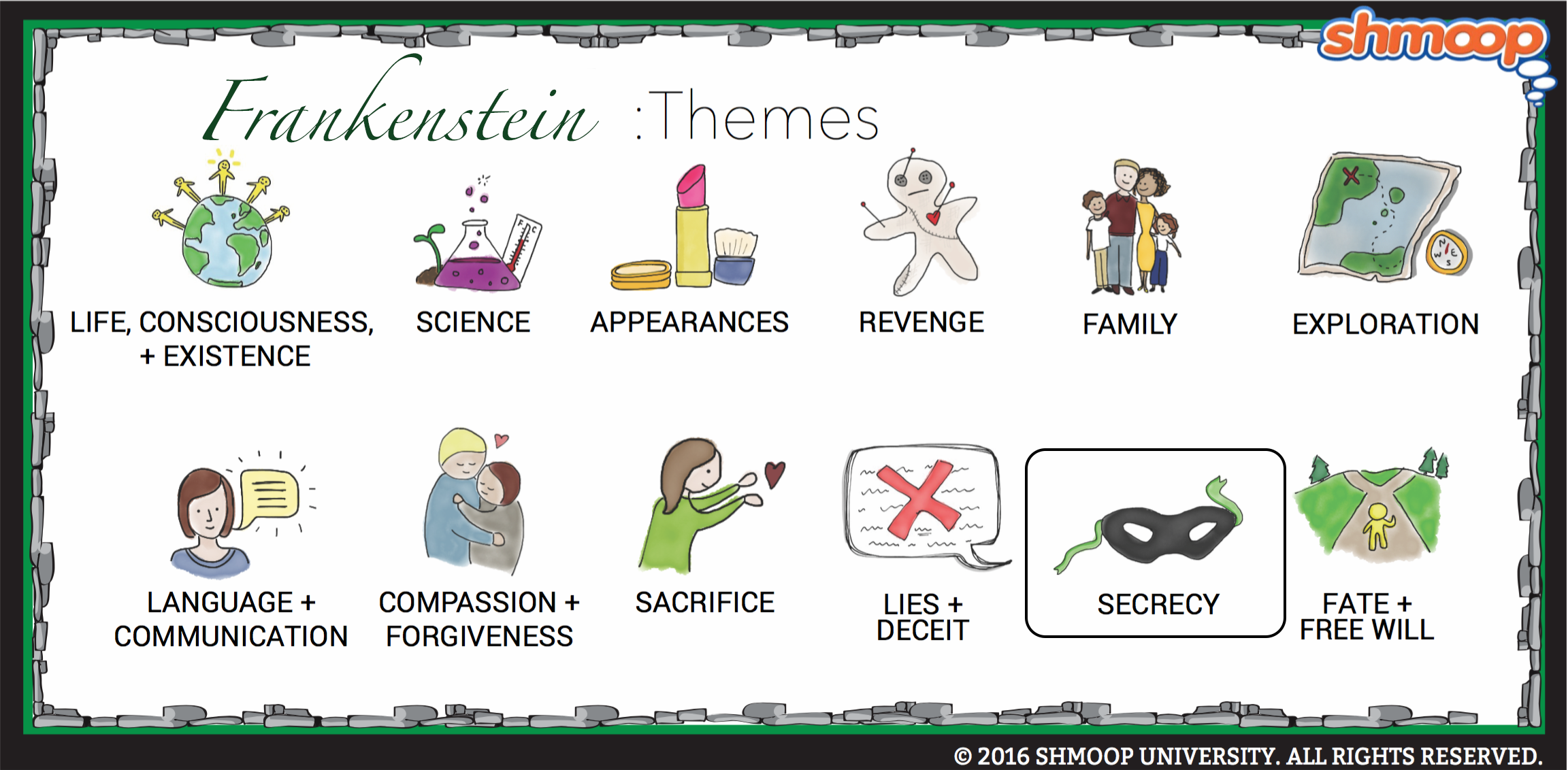 (Click the themes infographic to download.)
(Click the themes infographic to download.)
If there's one moral to Frankenstein that we can agree on, maybe it's this: some things are meant to stay secret. Trying to make nature reveal herself is, well, kind of like peeping through the window of a sorority house: you might get some cheap thrills, but you're also setting yourself up for some serious trouble. On the other hand… if Victor had just told someone about the monster, maybe none of the tragedy (or a lot less of the tragedy) would have happened. So, what's the deal with secrecy? Just like with everything else in this book, we can't make up our minds.
Questions About Secrecy
- Would Justine's situation have had a different outcome if Victor had been willing to give up his secrecy? If so, is Victor morally at fault for her death?
- A first-person narrative is tricky: it has a way of concealing as it tells, and telling as it hides. What does this first-person narrative hide? What does it reveal?
- Why does Elizabeth agree to marry Victor even though he is keeping a secret from her? Does she die because of his secret, or would she be fated to die anyway? Would you ever marry anyone who claimed to have a big secret?
- When Victor tries to tell a magistrate about the monster, no one believes him. Hmm…What might this imply? Can Victor really be held responsible for keeping his secret if no one would believe him anyway?
Chew on This
Victor's obsession with secrets causes his downfall.
Victor was right to keep the monster a secret: nobody would have believed him, and he probably would have gotten himself locked up.